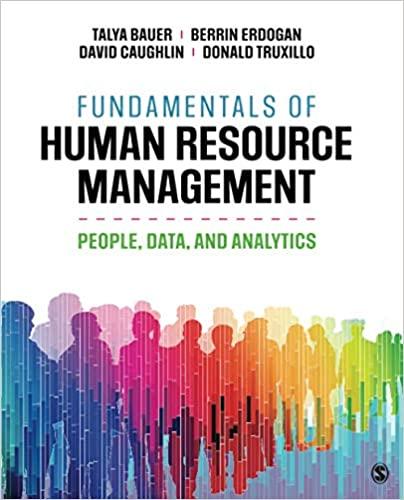A gig refers to a single project or task that an individual completes for pay, and individuals
Question:
A gig refers to a single project or task that an individual completes for pay, and individuals who complete gigs are often referred to as gig workers.
Examples of gigs range from driving for Uber and Lyft to performing assignments for TaskRabbit and Postmates. Estimates suggest that more than 23 million Americans work in the gig economy, and a 2017 MetLife survey indicated that 51% of workers expressed interest in gig work instead of a full-time, salaried position at a single organization. Because many gig workers earn most of their income through part-time employment or independent contracts, they typically do not have access to the employersponsored benefits that full-time employees have. As such, a common complaint among gig workers is the lack of certain voluntary benefits—
something that an organization called Care.com has sought to change.
Founded in 2007, Care.com is the world’s largest online marketplace aimed at connecting families with caregivers, babysitters, and nannies. The company’s overarching objective is “to improve the lives of families and caregivers by helping them connect in a reliable and easy way.” Care.com’s online marketplace connects millions of families with gig workers who provide care services. Amid calls for added protections and benefits for gig workers, in 2016, Care.com unveiled an initiative to contribute up to $500 per year to each care provider for health care, educational, and transportation expenses—a benefit that is relatively unheard of among gig workers...
Case Discussion Questions 1. What type of benefit did Care.com introduce for its gig workers?
Why?
2. In addition to offsetting health care, educational, and transportation expenses, what other benefits could Care.com provide to its gig workers? What types of benefits would be most valuable to gig workers?
3. What effect might gig workers’ ability to unionize have on their access to benefits?
4. In your opinion, in the future, will gig workers receive greater access to benefits, or will societal expectations of benefits change such that gig workers no longer expect access to employer-sponsored benefits?
Why?
Step by Step Answer:

Fundamentals Of Human Resource Management People Data And Analytics
ISBN: 9781544377728
1st Edition
Authors: Talya Bauer, Berrin Erdogan, David E. Caughlin, Donald M. Truxillo





